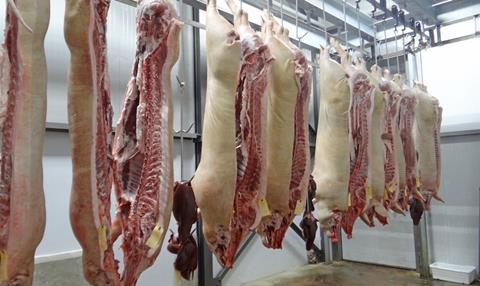Members of leading trade organisations are warning that unless things improve, the Brexit labour crisis means they will have to start slowing down production.

For abattoirs this will mean delay taking livestock off farms, which has the potential to create animal welfare issues.
The British Meat Processors Association (BMPA) CEO, Nick Allen, said: “While we have been lobbying for some time for easements to the immigration legislation, in particular for butchers to be added to the shortage occupation list, we have to recognise that the international Covid situation will be a barrier to solving the problem with labour from other countries.
“It would seem to us that Government should also take a more granular approach to the furlough system.
“Given that the whole food supply chain is struggling for labour it seems illogical that the country has millions of people being paid to stay at home.
“It is not a question of ending the system completely but getting a better understanding of who is on furlough and why. If we are not careful the solution may well be to import more food from abroad which is, of course, very easy to do at the moment without any import controls.”
Poultry
The British Poultry Council (BPC) chief executive, Richard Griffiths, said: “British food producers have shown phenomenal resilience and worked incredibly hard to feed the nation amidst the biggest crisis of our lifetime. Now is the time for the Government to support British businesses to ensure that quality British food never diminishes. We cannot run the risk of creating a two-tier food system where we import food produced to lower standards and only the affluent can afford high quality British produce.”
Entry level roles (requiring a Level 2 qualification) are where the sector is facing greatest difficulty. Griffiths continued: “We generally operate in areas of high local employment so there is a limit to availability of UK workers and there is negligible appetite from UK workers to move from other parts of the country. When it comes to non-UK labour – either from the EU or further afield – we have seen reducing numbers willing to come to the UK, the immigration barriers of salary and skill have been raised way beyond what we can manage, and the cost of bringing people is being prohibitive.”
Poultry meat businesses are determined to strike a balance between a skilled workforce and investing in innovation and technology. Griffiths added: “While technology will create higher skilled jobs in the future, we will always be reliant on people. Our sector has jobs that need skills, jobs that support our economy and communities, and jobs that ensure everyone has access to British food. The Government must recognise food as a special case that is treated as a national security issue. Losing control of how we feed ourselves as a nation would undermine British food producers at a time when we should be looking to use Brexit as an opportunity to take matters of food security and nutrition into our own hands.”
As a sector that produces over half of the meat eaten in this country, the British poultry meat industry is calling on the Government to:
• Include poultry meat supply chain workers on the ‘skilled worker list’ and reduce unnecessary thresholds on salaries and skills.
• Ensure vital food production is at the core of skills and education programmes such as the Lifetime Skills Guarantee and the Apprenticeship Levy to improve the appeal of the sector to build a UK workforce.
• Create pathways for seasonal workers with minimal administrative burden to support seasonal businesses and put British Turkeys on tables every Christmas.
This story was originally published on a previous version of the Meat Management website and so there may be some missing images and formatting issues.















